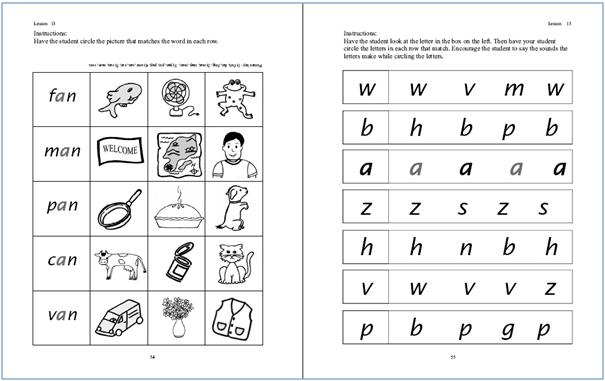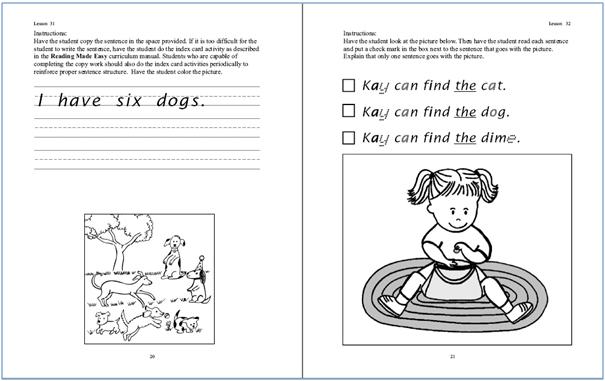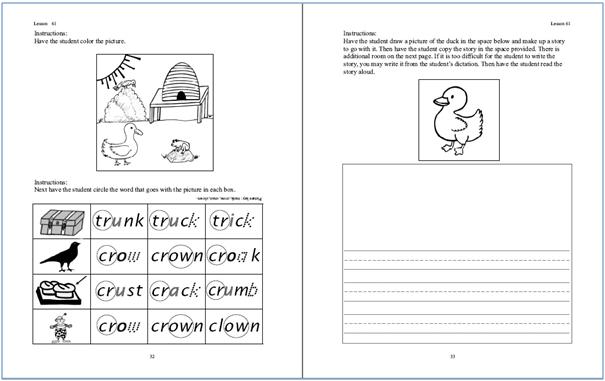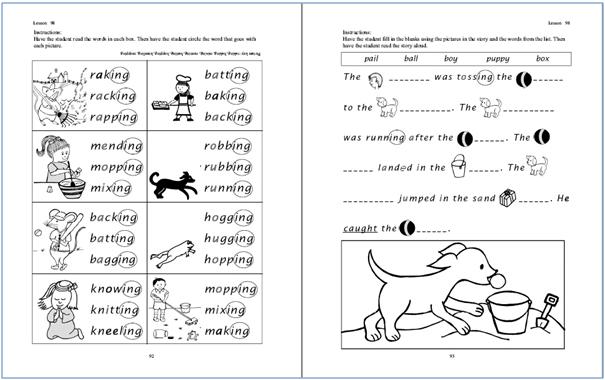Saluting Barack Obama’s Americorps.
Watch for this special moment.
It comes at 1:02 into the 1:24 clip below:
httpv://www.youtube.com/watch?v=6FKQvR0JTUc
 When he was 16, he had to flee England when the Puritans defeated and captured his father, King Charles I. His father was executed when he was 19 as he was trying desperately to organize an army to invade England and rescue him. He made promises to the Scots Covenanters that he had no intention of keeping in hopes of regaining his throne with a Scottish Army. Cromwell crushed his army at Worcester in 1651 and he had to flee for his life. He spent six weeks on the run, with a price on his head, often disguised as a servant or a groom. He and his friends tried to find a ship for France at three different ports and had dozens of narrow escapes before he was able to escape back to France.
When he was 16, he had to flee England when the Puritans defeated and captured his father, King Charles I. His father was executed when he was 19 as he was trying desperately to organize an army to invade England and rescue him. He made promises to the Scots Covenanters that he had no intention of keeping in hopes of regaining his throne with a Scottish Army. Cromwell crushed his army at Worcester in 1651 and he had to flee for his life. He spent six weeks on the run, with a price on his head, often disguised as a servant or a groom. He and his friends tried to find a ship for France at three different ports and had dozens of narrow escapes before he was able to escape back to France.
He spent nine years in exile. The French signed a treaty with Cromwell and he had to flee to Cologne, Germany. He and his closest advisors were without funds and often went without food.
And then, in the ninth year of his exile Cromwell died and the Republic in England fumbled between Generals and Parliament over who his successor should be. Finally, the Governor of Scotland, General Monck had enough and marched to London, presided over the election of a pro-royalist Convention Parliament, and Charles was restored to his throne.
I’m about 2/3 of the way into the bio of Good Time Charley – a nickname perhaps he earned, though it is not completely fair to him. Still, he had at least a dozen illegitimate children by seven mistresses, but no legitimate children.
Cromwell and the Puritans had closed the theaters in London. Charles and the Cavaliers reopened them (Cakes and ale for all!) and some very funny Restoration Drama was the result.
One of his friends composed the following bit of doggerel for him:
To which Charles is reputed to have replied:
“That is true; for my words are my own, but my actions are those of my ministers.”
On the home stretch for Famous Men of the 16th & 17th Century. I have three more chapters to finished and three to edit.
Onward. . .
With of the contraction in the book publishing world, it’s refreshing to “find” a persevering publisher with a number of very nice titles.
Kids Can Press is a Canadian publishing firm, founded in 1973 and headquartered in Toronto.
They have two series of children’s historical books that I find delightful.
Over the past six or seven years, they have produced six titles in a series titled the “Good Times Travel Agency.” I’m going to limit my review to the five that cover documented historical periods. They have a title, Adventures in the Ice Age that, chronologically speaking would come first – but it’s entirely a work of speculative imagination since there are no written records from anyone who lived during the Ice Age (or the Stone Age for that matter). My advice: if you’re teaching kids history, stick to history. Pre-history is, by definition, NOT history. It may be imaginative, but it’s not history.
So here are the five titles in the series:
Each of these is an 8.5″ x 11″ 48 page four-color romp through a particular time-period as we follow the adventures of the three Binkertons, Josh, Emma, and Libby. They KEEP returning to the Good Times Travel Agency, where one guide book after another magically transports them to a historical time and place. The guide book must be read to the end (every word) before the children can return – which is a clever way to get young readers to read the text that goes along with the adventures depicted in the humorous illustrations. In Egypt, Josh gets drafted into the corvee of workers who are helping to build Pharaohs pyramid. In the Middle Ages, he is first mistaken for a fool, taken to the castle, assigned to the kitchen (when he doesn’t prove very funny) and finally transferred to the stables. Each of the five books manages to provide an interesting story, the illustrations have lots of detail that conveys interesting tidbits, and the historical information presented is factual, reliable and non-politically correct.
Here are some sample spreads:
I’m REALLY hoping that Bailey and Slavin will add an Adventures in Ancient Rome to this series, but these five already are a great resource for families studying topics in world history in grades 4 to 6.
Greece, China, and the Middle Ages are $8.95. Ancient Egypt and the Vikings are $9.95. All can be ordered directly from Greenleaf Press by clicking on any of the links or book covers in this message.
The second series from Kids Can Press is their Kids Can Read series. In level 3 of that series, KCP has released eight short biographies for beginning readers. Many of these names will be familiar to most parents but for several KCP offers the ONLY biography in print for young readers. I think that KCP is the ONLY publisher currently offering children’s biographies of Samuel de Champlain (the French explorer who founded Quebec in 1608) and Lucy Maud Montgomery (the author of Anne of Green Gables). Each of these is 6″ x 9″, 32 pages, and four-color on all pages.
I really like both of the illustrators’ styles on these (John Mantha and Andrej C), and the story telling (by Elizabeth MacLeod) is very well done. These are perfect as first chapter books or practice chapter books for students in second and third grade.
Each of these is $3.95, and can be purchased directly from Greenleaf Press by clicking on the links or book cover images in this message.
– Rob Shearer, Publisher
Ms. Spears and I exchanged several email messages this morning (in my capacity as Vice President of the Tennessee Association of Church-Related Schools). I am happy to report that she has issued the following letter of clarification:
Dear Home School Parent:
It was brought to my attention that the letter sent out prior was misleading so I decided to send you the section of the law that pertains to the annual requirements of the home school parent so there would be no misunderstanding of what is expected.
In reference to section (2) (A) church related home school parents can disregard the notice mailed regarding the annual filing.
Parents who choose to independently home school are not required to personally report to the school board in person however I do like to meet my home school parents and provide them assistance as needed. If you would like to personally bring your notice of intent to my office, I will gladly sit down with you.
If the student plans to re-enroll in the public school, the parent should provide at the time of the re-enrollment a copy of the transcript of subjects the student covered while being home schooled.
Sincerely,
Sharon Spears
**********************************************
Original Post follows:
There are some bureaucrats (aka educrats) who just can’t seem to grasp the idea that they are not in charge of ALL the children. Doesn’t matter what the law says, parents cannot be allowed to teach their own children un-supervised. They’re not professionals! How will we know if the children are being properly socialized?
Sharon Spears is the Attendance Supervisor for the Coffee County School System. The Coffee County seat is Manchester, 60 miles southeast of Nashville, halfway to Chattanooga, down I-24. Sharon Spears has been listed as the Attendance Supervisor since at least 2001. She’s also listed as the GED co-ordinator, she is in charge of Dropout Information, she is the Liason for Homeless Children. She is the contact person at the school system for issues relating to Juvenile Court and the Truancy Board. Perhaps she’s been too busy to ever learn what Tennessee law is concerning homeschooling. That would be kind of ironic, since her page on the Coffee County School System website has a link to the Tennessee Department of Education’s page on homeschooling where the law is clearly explained.
How do I know that she hasn’t learned the Tennessee law on homeschooling?
Here’s the text of a letter she sent to homeschooling families in Coffee County a few days ago:
(dated) July 15, 2009
To All Home School Parents:
The state requires all parents who plan to home school their children to register annually with their local school system. You will need to stop by the Coffee County Board of Education in the Administrative Plaza to complete the necessary paperwork.
If you were conducting an Independent Home School during the 2008-2009 school year, please, bring your attendance record and your child’s transcript/grades with you. The deadline for notification without penalty is September 1st.
If you have additional needs or questions, you can contact me at 931-723-5150. Thank you so much for your prompt attention to this matter.
Sincerely,
(signed)Sharon Spears
Attendance Supervisor
This letter misrepresents the law in at least three very significant ways.
ONE: The State does NOT require ALL parents who wish to homeschool to register with their local school system. Parents have the CHOICE of signing up with their local school system OR with an umbrella school. If they sign up with an umbrella school, they are NOT required to sign up with the local school system.
TWO: Even Parents who have decided to homeschool AND register with the local school system do NOT have to “stop by the Coffee County Board of Education. . . to complete the necessary paperwork.” You may, and probably should file your notification by mail, with proof of delivery requested.
THREE: Parents signed up with the local school system do NOT have to supply their child’s transcript or grades to the school system. The only thing required to be reported to the local school system is attendance. And you don’t have to do it in person. Send in a calendar noting which days you conducted school with your children. Verify that the days total 180. Send it in.
Coffee County homeschoolers can safely ignore the arbitrary requirements of Ms. Spears’ letter. If you decide to homeschool and sign up with an umbrella school, you can ignore the Coffee County School System completely. If you choose to homeschool and sign up with the public school system, you can send your “notice of intent to homeschool” form in by mail. And you have no obligation to report to them anything other than your attendance records.
Ms. Spears should know better. She is attempting to require more than the law requires. She is attempting to force parents to submit records and information they are not required to submit.
She should know better. She’s been there for over eight years.
She should be ashamed of herself. However, when the misleading sections of her letter were pointed out to her, she promptly issued a “clarification document” which addressed each of these three issues and revised her requests to just those items required by state law.
And the director of schools for Coffee County, Kenny Casteel, should also be ashamed chagrined. You see, that same homeschooling law referred to on the Department of Education’s webpage contains this sentence:
“The director of schools or the director of schools’ designee shall ensure that attendance teachers are informed of parents’ rights to conduct a home school pursuant to § 49-6-3001(c)(4), subsection (a) of this section, and § 49-50-801 upon employment of such persons and at the beginning of each school year;”
They have no right to claim they didn’t know what the law said. The Director of Schools and the Attendance Supervisor have a legal obligation to make sure they understand the law and know what parents’ rights are.
To read all the details, and a REALLY excellent article, click on over to the Link Homeschool News Network and read the article by Diane Flynn Keith.
 I’ve just finished drafting a short biography of John Winthrop for my next book, Famous Men of the 16th & 17th Century. The biographies begin with Queen Elizabeth and will end with the death of Louis XIV in 1715.
I’ve just finished drafting a short biography of John Winthrop for my next book, Famous Men of the 16th & 17th Century. The biographies begin with Queen Elizabeth and will end with the death of Louis XIV in 1715.
This has been a difficult chapter for me to write, and taken longer than I expected. I have developed an admiration for Winthrop, even if I have not been able to muster a great deal of affection. If I had known him, I might have liked him – but on the whole he seems to have had a very serious bent. Luther did too, but Luther had a playful, mischievous side to him that I greatly appreciate. I can find no hint of mischief in all of Winthrop’s writings.
Still, he is a man to be admired.
Part of the difficulty in writing about him is having to explain the culture and institutions within whose bounds he operated. He is an Englishman of the 1600s. Further, he is Puritan in his religious convictions. Further, he is from a moderately well-off, connected family from the Stour Valley in Suffolk. And he was a lawyer. I hope you get my drift.
Reasons to admire him? There are many.
His family – when he died, he had six surviving sons. The oldest was 48, the youngest barely a year old. Winthrop was widowed three times, twice before he was 30. He and his third wife were married for 29 years and had raised four sons together when she died. Winthrop, a widower at 59, married for a fourth time, and had a son who was just a year old when he died.
His leadership / perseverance – He joined the Puritan company who were planning to plant a colony in the new world in 1629 and was almost immediately elected governor. He organized a fleet of 11 ships and 700 colonists who sailed for Massachusetts just six months later.
His moderation – As governor he sought to reconcile embittered parties who came before him with legal disputes. He knew what a great freedom the Puritans had achieved by being granted a charter that allowed the colony to govern itself – without a royal, appointed governor.
His resolve – The life of the colonists was harsh, and challenging. Mortality was quite high – over 50% for many years. Threatened by disease, starvation, Indian attacks, and on occasion by internal quarrels, Winthrop persevered in seeing the colony grow and prosper. It had a population of over 15,000 when he died in 1649 – nineteen years after the first 700 had crossed the Atlantic in the Winthrop fleet.
Some may think the cases of Roger Williams and Anne Hutchinson are damaging to Winthrop’s reputation, but the original sources do not reflect badly on him. I would argue that Williams’ banishment from Massachusetts was not so harsh as later historians wish to portray it. In fact, after settling in Rhode Island, Williams and Winthrop maintained a friendly correspondence and sent each other gifts from time to time.
Anne Hutchinson is another matter altogether. I believe that the popular story of Hutchinson as an early feminist and a martyr for toleration and religious freedom can only be described as a great historical fraud. She has been adopted by those pursuing modern ideologies for their own reasons. In the record, it is clear that she was as intolerant (if not more so) as the Puritans of Boston. She was, in fact, agitating and organizing a faction in the church at Boston in an attempt to have one of the ministers dismissed and her brother-in-law appointed in his place. She claimed to know “by direct revelation of the Holy Spirit” who were truly elect and who were not. She charged that only Rev. Cotton and Rev. Wheelwright (her brother-in-law) were true ministers of the gospel and that all the other ministers of Massachusetts were preaching a false “covenant of works.” Had she succeeded, she would have gladly seen Winthrop banished from the colony.
Well.. chapter 18 is now drafted. The page count stands at 163. I have to finnish finding illustrations for these last few chapters. I have seven more to draft myself, and three to edit from the original Famous Men of Modern Times. Time to push on. . .
 John C. Beale, age 39, husband, father, and member of the Georgia National Guard was killed in Afghanistan on June 4th, 2009. He was a Staff Sergeant with the 1st Battalion, 108th Reconnaissance, Surveillance and Target Acquisition Squadron, 48th Infantry Brigade Combat Team. He is survived by his wife and by a 12-year-old son and an 8-year-old daughter.
John C. Beale, age 39, husband, father, and member of the Georgia National Guard was killed in Afghanistan on June 4th, 2009. He was a Staff Sergeant with the 1st Battalion, 108th Reconnaissance, Surveillance and Target Acquisition Squadron, 48th Infantry Brigade Combat Team. He is survived by his wife and by a 12-year-old son and an 8-year-old daughter.
His friends and neighbors in Georgia turned out to honor him when he returned. His coffin arrived at the airport in Peachtree City, Georgia on Thursday, June 11 and was taken by motorcade to a funeral home in his hometown of McDonough. Word had traveled rapidly through the Georgia communities and they turned out in large numbers to line the route of the motorcade to honor a fallen soldier.
Traveling in the motorcade was state Rep. Steve Davis, who put together this video of the crowds that lined the route. There is something very significant in seeing the outpouring of support and respect here.
You can join in honoring this serviceman’s sacrifice by watching the video. It runs 12 and a half minutes.
More stories here:
Crowds line route to honor fallen soldier
Fox News – Interview with John Beale’s family
In Memory of the Fallen – from SMSgt Rex Temple
 Back in September, we were very pleased to announce that we had become the publisher for Valerie Bendt’s Reading Made Easy. Reading Made Easy is a complete, phonics-based, reading instruction program. Valerie and her husband Bruce have homeschooled all six of their children and literally thousands of children have learned to read using her easy, step-by-step, reading program. One of the best things about Reading Made Easy is the love of reading that Valerie exemplifies and communicates throughout. In the appendix, Valerie lists eight pages of recommended books for parents to read aloud to their children – these are the children’s classics, time-tested titles like Curious George, Peter Rabbit, and Madeleine. Also included are two pages of suggested first readers for children.
Back in September, we were very pleased to announce that we had become the publisher for Valerie Bendt’s Reading Made Easy. Reading Made Easy is a complete, phonics-based, reading instruction program. Valerie and her husband Bruce have homeschooled all six of their children and literally thousands of children have learned to read using her easy, step-by-step, reading program. One of the best things about Reading Made Easy is the love of reading that Valerie exemplifies and communicates throughout. In the appendix, Valerie lists eight pages of recommended books for parents to read aloud to their children – these are the children’s classics, time-tested titles like Curious George, Peter Rabbit, and Madeleine. Also included are two pages of suggested first readers for children.
We are now VERY pleased to announce that there are now four Student Activity Books available which supplement and provide additional practice for the lessons in Reading Made Easy. Each of the four Student Activity Books covers 27 of the lessons in Reading Made Easy and provide:
The Reading Made Easy Student Activity Books offer parents and teachers the additional materials to make sure their students master each lesson before moving on to new concepts. It also enables the students to create notebooks which display the material they have learned. The notebooks are wonderful keepsakes and are a valuable addition to students’ educational portfolios.
Here are some sample pages:




 Greenleaf Press is announcing the availability of all four Student Activity Books today.
Greenleaf Press is announcing the availability of all four Student Activity Books today.
Or you can purchase all four Student Activity Books together at a 10% discount for $45.00 ($50.80 if purchased separately!)
 We are also now able to offer the Complete Reading Made Easy Package which includes a copy of Reading Made Easy (511 pages, $49.95) and all four Student Activity Books may be purchased for $89.95 ($100.75 if purchased separately!)
We are also now able to offer the Complete Reading Made Easy Package which includes a copy of Reading Made Easy (511 pages, $49.95) and all four Student Activity Books may be purchased for $89.95 ($100.75 if purchased separately!)
As with all Greenleaf products, every book is guaranteed to be twaddle-free. If you decide you don’t want to keep a book you have purchased from us for any reason, you may return it within 30 days for a full refund.
If you’re looking for a family-friendly, mom-friendly, complete reading instruction package, we highly recommend Reading Made Easy
– Rob Shearer, Publisher
Greenleaf Press.
1776. The vote for independence, and the public reading of the Declaration.
From the HBO John Adams series.
Adams was the leading proponent. Franklin was the vote-getter/strategist. Jefferson drafted the soaring prose.
Take a moment and savor. Watch it with your children. Give thanks to God for the Founders.
httpv://www.youtube.com/watch?v=nrvpZxMfKaU
Created in 1989, the Convention (often abbreviated as the “CRC”) has a number of laudable goals and features. It has been ratified by 193 countries around the world. The only two UN member states which have NOT ratified it are Somalia and the United States (which proponents of the treaty often cite as something that should be embarrassing to the United States).
There is much in this treaty which is admirable and non-controversial. There are some parts of it which are simply innocuous. And there are some parts of it which pro-family and pro-homeschooling advocates in the United States find objectionable.
But why all the hubbub over a UN Convention? Isn’t this simply a non-binding statement of principles?
For many countries, that might be the case (and probably explains why many of the 193 have ratified – for them, ratification has no practical effect on their own laws and practices).
But the effect of ratifying a treaty in the United States is different, because of Article VI of the US Constitution and the 14th Amendment.
Article VI (often called the “Supremacy Clause”) states, in part:
This Constitution, and the Laws of the United States which shall be made in Pursuance thereof; and all Treaties made, or which shall be made, under the Authority of the United States, shall be the supreme Law of the Land; and the Judges in every State shall be bound thereby, any Thing in the Constitution or Laws of any State to the Contrary notwithstanding.
The Supremacy Clause makes all treaties ratified by the US Senate binding in all Federal AND in all State courts. Which means that the United States Senate should be very careful when it votes to ratify a treaty. It also helps explain why the ratification of a treaty requires a 2/3 vote of the Senate – Treaty ratification is akin to amending the Constitution, and comes close to it in its wide-reaching consequences and significance.
Non-Controversial Sections of the UN Convention on the Rights of the Child include the prohibitions on kidnapping, child labor, child prostitution, and using children as soldiers. Ironically, the United States HAS signed and ratified both of the optional protocols which have been appended to the CRC: one on the use of children in military conflicts and one which prohibits child pornography.
The problematic parts of the CRC are in articles 13-17 which enumerate children’s rights which all parties to the CRC agree to recognize. These rights are described in legal language which is at times ambiguous, perhaps deliberately so. They include the right to freedom of expression, the right to receive information, freedom of thought, conscience and religion, freedom of association and peaceful assembly, a right to personal privacy and a right to access mass media. And here is where the issues arise. It would be one thing to assert that a child has these enumerated rights and that children must be protected from any attempt by the state to interfere with them. But the CRC leaves open and unresolved whether a child has these rights and can appeal to the state to prevent any of these rights from being abridged by parents. Given the Constitutional status afforded treaties and the social activism of parts of the legal community, it is quite probable that these rights would be raised in legal proceedings against parents by advocates acting in the name of children. If the CRC intended to protect children from any abridging of these rights by the State (but not by parents), then it should have said so. Because it does not limit its applicability to actions against the states, in the US Courts, it would inevitably be invoked in cases of conflicts between parents and children, with the result that parental authority would be eviscerated and children would be free to make dangerous and/or inappropriate choices, with parents forbidden from interfering. To take but one example, if parents decided to enroll a child in a religious school, the child could object and bring action citing the CRC and veto the parents’ decision.
Ratification of the treaty would provide the basis for the state to intervene in parenting decisions regarding education, media, and friends. It would radically undermine the rights of parents to direct the care, upbringing and education of their children.
The CRC has been repeatedly interpreted by the UN, by its committees, and in other judicial settings as requiring ratifying governments to “prohibit all forms of violence, including corporal punishment, in the upbringing of children.”
For some, this is simply one more reason to support ratification. But the overwhelming majority of parents in the US believe that corporal punishment by parents is a legitimate form of discipline. In any event, the definition of child abuse and neglect is currently made by state law, interpreted by state courts. Ratification of the CRC would, in effect, be the enactment of a federal ban on corporal punishment. No matter how you feel about the issue, federalizing it will have terrible consequences for families.
The CRC also establishes a UN committee and requires ratifying states to submit a report on implementation of the CRC within two years and every five years thereafter. The Committee may request additional information, review, and comment on States’ reports, but it does not appear to have any enforcement authority. I view the Committee as, at worst, an annoyance. Various states have already received chiding comments from the Committee, but they have little practical effect, other than in the court of public opinion (which is to say hardly at all). Of far greater concern is potential enforcement actions of the US federal courts, acting with the authorization of the US Constitution’s attribution of legal authority to all ratified treaties.
Here’s a link to the full text of the Convention (at the UN web site): http://www.unhchr.ch/html/menu3/b/k2crc.htm
I would encourage everyone interested to read the text for themselves, paying particular attention to articles 13-17.
There is also an interesting article in the Emory International Law Review by Prof. David M. Smolin of the Cumberland Law School, which identifies the issues pretty clearly. Prof. Smolin believes the objections to Articles 13-17 could be overcome by the adoption of “reservations” by the US Senate, and argues that the treaty is not self-executing and therefore should not cause concern. The treaty is NOT self-executing, but the US Constitution spells out the mechanism by which treaties become supreme law which must be followed by all federal and state judges. I think Prof. Smolin has missed this point.
Further Reading:
U.N. Fairy Tales About Children, Kay S. Hymowitz,
City Journal
Abandoning Children to Their Rights, Bruce C. Hafen and Jonathan O. Hafen, First Things
HSLDA has a series of articles, all linked from this page: http://www.hslda.org/docs/nche/Issues/U/United_Nations.asp
ParentalRights.org also has a well documented and footnoted article, 20 Things you Need to Know about the UN Convention on the Rights of the Child